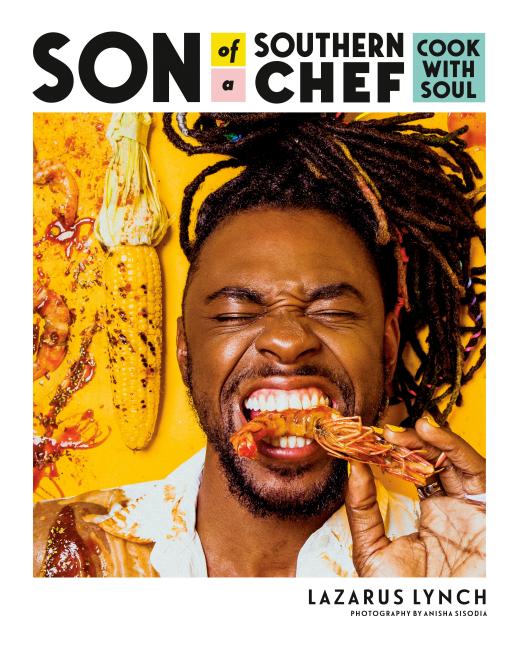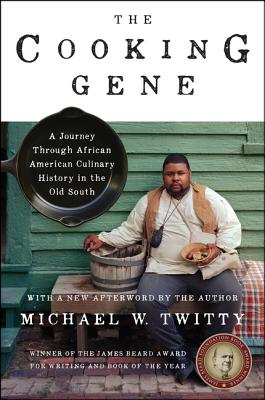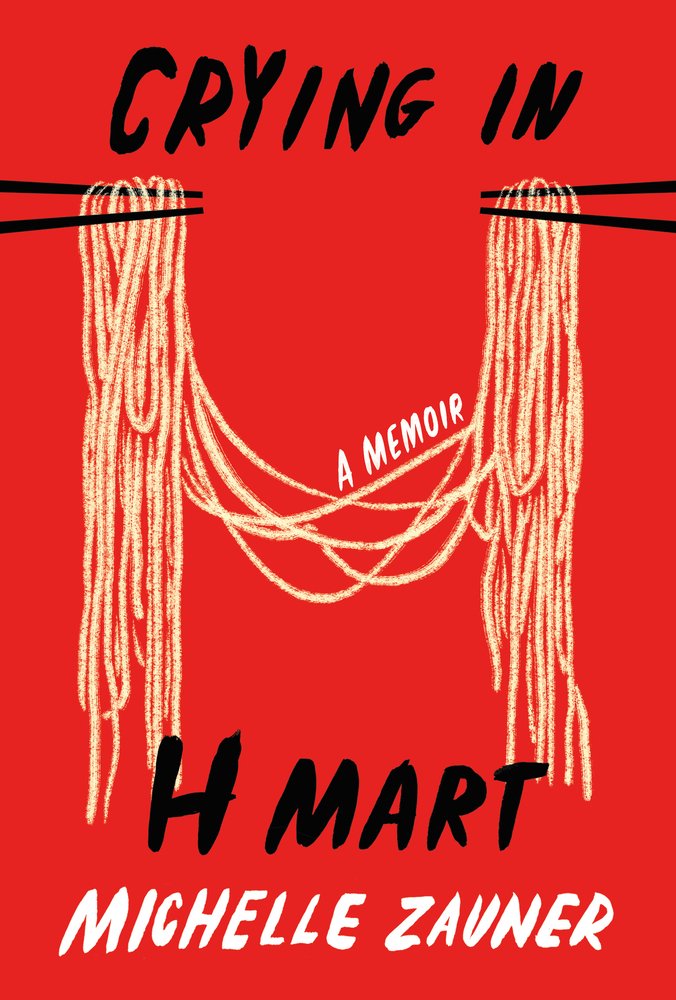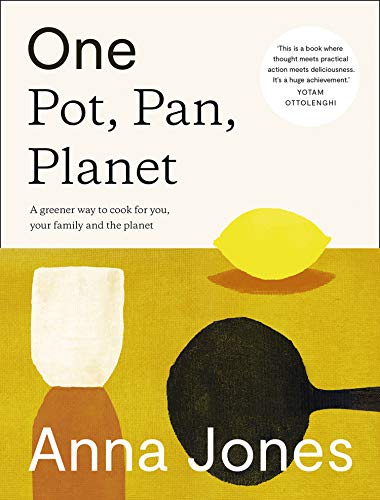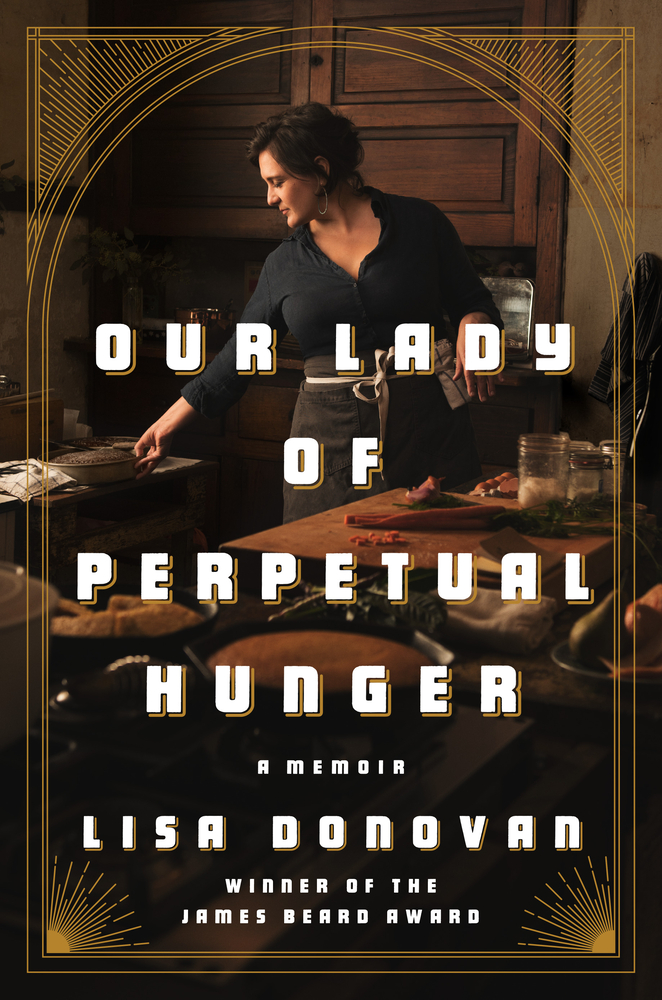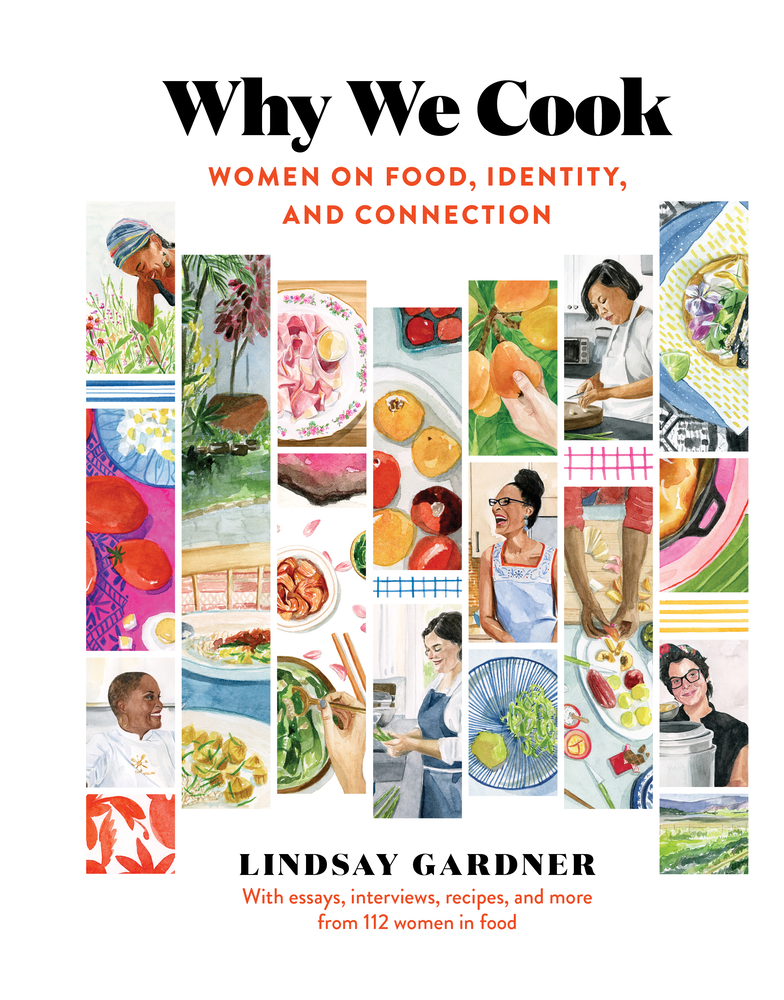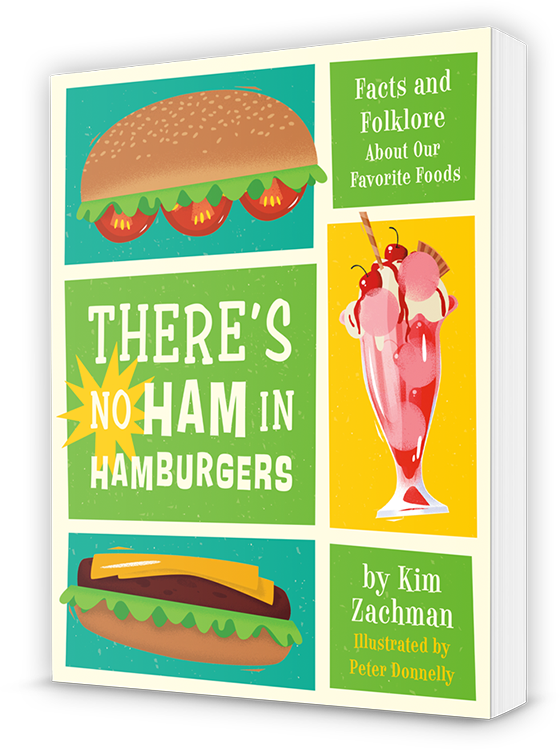DIY Book Club
For Summer 2021, Slow Food Denver has compiled a list of 8 books that dive into issues that affect Equity, Inclusion and Justice in our food system today. We invite you to learn and share with us in the multitude of possibilities for a more equitable, healthy and just food system.
All of these books can be purchased at the Slow Food USA online bookstore. 10% of all SFUSA book sales goes towards the Slow Food USA National Resilience Fund.
DIY Book Club How-To:
Whether you’ve been a part of a book club or this will be your first time, if you’re focusing on one of our below recommended book lists, it’s important you invite friends, family and colleagues that are interested in a food-centric book club. Consider contacting people who’ve met through Slow Food Denver to join or to co-lead the book club with you.
We’ve provided a list of 12 books to take you through each year. Feel free to rearrange the order and skip books that aren’t of interest to you. For each book, we’ve provided a reader’s guide so you have questions and discussion topics for each book. This should make leading the book club easy peasy!
There are a few key questions to work out to start a successful book club:
- How many members should you invite?
5 to 15 members are best: enough for a discussion if some are absent, but not so many that discussions become unwieldy. - How often should you meet?
Monthly works best for most clubs. Some meet every 6 weeks. Once you choose a schedule, try to stick with it. - When should the group meet?
Whether weekday evenings or weekends, this will largely depend on the job/childcare schedules of your members. - Where should the group meet?
Some good meeting places are: homes, clubhouses, public libraries, local Y’s, and restaurants. If you want to get really creative, you can vary the meeting place and cuisine based on the setting of the book. Alternatively, if meeting in person is challenging, consider using Skype or Google Hangouts to have a virtual book club get-together. - How do we keep in touch?
When you start the group, distribute a list of names and phone numbers, along with setting the ground rules for your group’s meeting frequency, possible meeting places and book list. Send out monthly meeting reminders.
2021 Book Club Suggestions:
2020 Book Club Suggestions
.Braiding Sweetgrass: INdigenous wisdom, scientific knowledge, and the teaching of plants by robin wall kimmerer
Drawing on her life as an indigenous scientist, and as a woman, Kimmerer shows how other living beings–asters and goldenrod, strawberries and squash, salamanders, algae, and sweetgrass–offer us gifts and lessons, even if we’ve forgotten how to hear their voices. In reflections that range from the creation of Turtle Island to the forces that threaten its flourishing today, she circles toward a central argument: that the awakening of ecological consciousness requires the acknowledgment and celebration of our reciprocal relationship with the rest of the living world. For only when we can hear the languages of other beings will we be capable of understanding the generosity of the earth, and learn to give our own gifts in return.
Cultivating food justice: Race, class, and sustainability by alison hope alkon and julian agyeman
Many low-income neighborhoods and communities of color have been systematically deprived of access to healthy and sustainable food. These communities have been actively prevented from producing their own food and often live in “food deserts” where fast food is more common than fresh food. Cultivating Food Justice describes their efforts to envision and create environmentally sustainable and socially just alternatives to the food system.
Farming while black: soul Fire farm’s practical guide to liberation on the land by leah penniman
While farm management is among the whitest of professions, farm labor is predominantly brown and exploited, and people of color disproportionately live in “food apartheid” neighborhoods and suffer from diet-related illness. The system is built on stolen land and stolen labor and needs a redesign. Farming While Black is the first comprehensive “how to” guide for aspiring African-heritage growers to reclaim their dignity as agriculturists and for all farmers to understand the distinct, technical contributions of African-heritage people to sustainable agriculture.
Food Justice by robert gottlieb and anupama joshi
In today’s food system, farm workers face difficult and hazardous conditions, low-income neighborhoods lack supermarkets but abound in fast-food restaurants and liquor stores, food products emphasize convenience rather than wholesomeness, and the international reach of American fast-food franchises has been a major contributor to an epidemic of “globesity.” To combat these inequities and excesses, a movement for food justice has emerged in recent years seeking to transform the food system from seed to table. In Food Justice, Robert Gottlieb and Anupama Joshi tell the story of this emerging movement.
Freedom Farmers: Agricultural resistance and the black freedom movement by monica M. White
Freedom Farmers expands the historical narrative of the black freedom struggle to embrace the work, roles, and contributions of southern black farmers and the organizations they formed. Whereas existing scholarship generally views agriculture as a site of oppression and exploitation of black people, this book reveals agriculture as a site of resistance and provides a historical foundation that adds meaning and context to current conversations around the resurgence of food justice/sovereignty movements in urban spaces like Detroit, Chicago, Milwaukee, New York City, and New Orleans.
Indigenous food sovereignty in the united states: restoring cultural knowledge protecting environments and regaining health edited by devon A. Mihesuah and Elizabeth Hoover
Centuries of colonization and other factors have disrupted indigenous communities’ ability to control their own food systems. This volume explores the meaning and importance of food sovereignty for Native peoples in the United States, and asks whether and how it might be achieved and sustained.
The COlor of Food: Stories of Race, resilience and farming by natasha bowens
The growing trend of organic farming and homesteading is changing the way the farmer is portrayed in mainstream media, and yet, farmers of color are still largely left out of the picture. The Color of Food seeks to rectify this by recognizing the critical issues that lie at the intersection of race and food.
The jemima code: Two centuries of african american cookbooks by toni tipton-martin
Women of African descent have contributed to America’s food culture for centuries, but their rich and varied involvement is still overshadowed by the demeaning stereotype of an illiterate “Aunt Jemima” who cooked mostly by natural instinct. To discover the true role of black women in the creation of American, and especially southern, cuisine, Toni Tipton-Martin has spent years amassing one of the world’s largest private collections of cookbooks published by African American authors.
The sioux chef’s indigenous kitchen by sean sherman with beth dooley
Here is real food–our indigenous American fruits and vegetables, the wild and foraged ingredients, game and fish. Locally sourced, seasonal, “clean” ingredients and nose-to-tail cooking are nothing new to Sean Sherman, the Oglala Lakota chef and founder of The Sioux Chef. In his breakout book, The Sioux Chef’s Indigenous Kitchen, Sherman shares his approach to creating boldly seasoned foods that are vibrant, healthful, at once elegant and easy.
Women on food by charlotte druckman
Women on Food unites the radical, diverging female voices of the food industry in this urgent, moving, and often humorous collection of essays, interviews, questionnaires, illustrations, quotes, and ephemera.
2019 Book Club Suggestions
No one Eats Alone: Food as a Social Enterprise
Carolan contends that real change only happens when we start acting like citizens first and consumers second. No One Eats Alone is a book about becoming better food citizens.
A Thousand Days in Tuscany
From the author of the bestselling A Thousand Days in Venice, these are the further adventures of Marlena and Fernando and their experiences as they move to a small village in Tuscany. Another delicious combination of authentic Italian life, food, recipes, love and memoir.
Tomatoland: How Modern Industrial Agriculture Destroyed Our Most Alluring Fruit
Tomatoland combines history, legend, passion for taste, and investigative reporting on modern agribusiness and environmental issues into a revealing, controversial look at the tomato, the fruit we love so much that we eat $4 billion-worth annually.
Fair Food: Growing a Healthy, Sustainable Food System for All
An inspiring and practical vision for changing not only what we eat, but how food is grown, packaged, delivered, marketed, and sold.
In Defense of Food
Pollan proposes a new (and very old) answer to the question of what we should eat that comes down to seven simple but liberating words: Eat food. Not too much. Mostly plants.
The Urban Food Revolution
The Urban Food Revolution provides a recipe for community food security based on leading innovations across North America. The author draws on his political and business experience to show that we have all the necessary ingredients to ensure that local, fresh sustainable food is affordable and widely available.
Empires of Food: Feast, Famine, and the Rise and Fall of Civilizations
Using the colorful diaries of a sixteenth-century merchant as a narrative guide, Empires of Food vividly chronicles the fate of people and societies for the past 12,000 years through the foods they grew, hunted, traded, and ate–and offers fascinating, and devastating, insights into what to expect in years to come.
Food Rebels, Guerilla Gardeners and Smart Cookin’ Mamas: Fighting Back in an Age of Industrial Agriculture
Food Rebels, Guerrilla Gardeners, and Smart-Cookin’ Mamas challenges us to go beyond eating local to become part of a larger solution, demanding a system that sustains body and soul.
You and I Eat the Same
In eighteen thoughtful and engaging essays and stories, You and I Eat the Same explores the ways in which cooking and eating connect us across cultural and political borders, making the case that we should think about cuisine as a collective human effort in which we all benefit from the movement of people, ingredients, and ideas.
The Way We Eat: Why Our Food Choices Matter
A thought-provoking look at how what we eat profoundly affects all living things—and how we can make more ethical food choices.
Nourished Planet: Sustainability in the Global Food System
In Nourished Planet, the Barilla Center for Food & Nutrition offers a global plan for feeding ourselves sustainably.
A Foodie’s Guide to Capitalism
In his latest book, Eric Holt-Giménez takes on the social, environmental, and economic crises of the capitalist mode of food production.
2018 Book Club Suggestions
Cork Dork: A wine-fueled adventure among the obsessive sommeliers, big bottle hunters, and rogue scientists who taught me to live for taste by Bianca Bosker
An exploration of the question, “what’s the big deal about wine?”, through a year and a half long adventure of tasting groups, exclusive New York City restaurants, and wineries.
Grocery: The Buying and Selling of Food in America by Michael Ruhlman
New York Times best selling author Ruhlman examines the rapid change of supermarkets that has drastically affected the way that we produce, consume, and distribute food.
Tender at the Bone: Growing Up at the Table by Ruth Reichl
In this witty and compelling chronicle of a culinary sensualist’s coming-of-age, Reichl conveys how her tastes were determined and enhanced by her interactions and experiences.
The Last Days of Café Leila: A Novel by Donia Bijan
This powerful story of food and family set against the backdrop of Iran’s turbulent history stresses the importance of tradition.
Street Food Asia by Luke Nguyen
A journey through the heady, fragrant backstreets of Asia to discover street food at its very best.
Bound to the Fire: How Virginia’s Enslaved Cooks Helped Invent American Cuisine by Kelley Fanto Deetz
By focusing on enslaved cooks at Virginia plantations, Deetz restores these forgotten figures to their rightful place in American and Southern history. Bound to the Fire illuminates their role in plantation culture and celebrates their living legacy with the recipes that they created and passed down to future generations.
Silent Spring by Rachel Carson
This passionate commentary on the future of the planet reverberated powerfully throughout the world and was instrumental in launching the environmental movement. Silent Spring is without question one of the landmark books of the twentieth century.
Coming to my Senses by Alice Waters
Waters turns her passion project of a “little French restaurant” in California into an iconic institution that redefined American cuisine for generations of chefs and food lovers.
The Unsettling of America by Wendell Berry
In his reflection that good farming is a cultural development and spiritual discipline, Berry argues that agribusiness takes farming out of its cultural context and away from families, leaving our nation more estranged from our land than ever.
The Lorax by Dr. Seuss
Long before “going green” was mainstream, Dr. Suess’s Lorax spoke for the trees and warned of the dangers of disrespecting the environment.
Cooked: A Natural History of Transformation by Michael Pollan
Pollan explores the previously uncharted territory of his own kitchen by transforming nature into food through the enduring power of the four classical elements-fire, water, air, and earth.
Fresh Off the Boat by Eddie Huang
The story of a Chinese-American in a could-be-anywhere cul-de-sac blazing his way through America’s deviant subcultures, trying to find himself, ten thousand miles from his legacy and anchored only by his conflicted love for his family and his passion for food.
2017 Book Club Suggestions
Spoon Fed: How Eight Cooks Saved My Life, By Kim Severson
A memoir recounting the tough life lessons she learned from a generation of female cooks-including Marion Cunningham, Alice Waters, Ruth Reichl, Rachael Ray, and Marcella Hazan.
Kitchens of the Great Midwest, by Ryan Stradal
A novel about a young woman with a once-in-a-generation palate who becomes the iconic chef behind the country’s most coveted dinner reservation.
Blood, Bones & Butter: The Inadvertent Education of a Reluctant Chef
Follows an unconventional journey through the many kitchens Hamilton has inhabited through the years: the rural kitchen of her childhood, where her adored mother stood over the six-burner with an oily wooden spoon in hand; the kitchens of France, Greece, and Turkey, where she was often fed by complete strangers and learned the essence of hospitality; the soulless catering factories that helped pay the rent; Hamilton’s own kitchen at Prune, with its many unexpected challenges; and the kitchen of her Italian mother-in-law, who serves as the link between Hamilton’s idyllic past and her own future family – the result of a difficult and prickly marriage that nonetheless yields rich and lasting dividends.
Sweetbitter: A Novel by Stephanie Danler
A lush novel of the senses – of taste and hunger, seeing and understanding, love and desire – Sweetbitter is ultimately about the power of what remains after disillusionment and the transformation and wisdom that come from our experiences, sweet and bitter.
Stuffed and Starved by Raj Patel
Going beyond ethical consumerism, Patel explains, from seed to store to plate, the steps to regain control of the global food economy, stop the exploitation of both farmers and consumers, and rebalance global sustenance.
Eight Flavors: The Untold Story of American Cuisine by Sarah Lohman
Eight Flavors introduces the explorers, merchants, botanists, farmers, writers, and chefs whose choices came to define the American palate. Lohman takes you on a journey through the past to tell us something about our present, and our future.
A Tortilla is Like Life by Carole M. Counihan
In this book, Counihan features extensive excerpts from these interviews to give voice to the women of Antonito and highlight their perspectives. Three lines of inquiry are framed: feminist ethnography, Latino cultural citizenship, and Chicano environmentalism. Counihan documents how Antonito’s Mexicanas establish a sense of place and belonging through their knowledge of land and water and use this knowledge to sustain their families and communities.
The Telling Room by Michael Paterniti
Equal parts mystery and memoir, travelogue and history, The Telling Room is an astonishing work of literary nonfiction by one of our most accomplished storytellers. A moving exploration of happiness, friendship, and betrayal, The Telling Room introduces us to Ambrosio Molinos de las Heras, an unforgettable real-life literary hero, while also holding a mirror up to the world, fully alive to the power of stories that define and sustain us.
Rice Noodle Fish: Deep Travels Through Japan’s Food culture by Matt Goulding
From the kaiseki of Kyoto and sushi masters of Tokyo, to the street food of Osaka and the ramen of Fukuoka, Rice, Noodle, Fish contains countless facts you never knew and would never have guessed. It’s a wonderfully detailed, artful book that will have you appreciating your Japanese adventure that much more.
The Drunken Botanist by Amy Stewart
Every great drink starts with a plant. Sake began with a grain of rice. Scotch emerged from barley. Gin was born from a conifer shrub when medieval physicians boiled juniper berries with wine to treat stomach pain. The Drunken Botanist uncovers the surprising botanical history and fascinating science and chemistry of over 150 plants, flowers, trees, and fruits (and even a few fungi).
First Bite: How we learn to eat by Bee Wilson
In First Bite, the beloved food writer Bee Wilson draws on the latest research from food psychologists, neuroscientists, and nutritionists to reveal that our food habits are shaped by a whole host of factors, including family, culture, memory, gender, hunger, and love.
Unprocessed: My City Dwelling Year of Reclaiming Real Food by Megan Kimble
Backed by extensive research and wide-ranging interviews—and including tips on how to ditch processed food and transition to a real-food lifestyle—Unprocessed offers provocative insights not only on the process of food, but also the processes that shape our habits, communities, and day-to-day lives.
2016 Book Club Suggestions
The Omnivore’s Dilemma: A Natural History of Four Meals by Michael Pollan
A James Beard Award Winner, The Omnivore’s Dilemma asks the question, What should we have for dinner? Michael Pollan explains in his book, how we answer that question may determine our survival as a species.
Garlic and Sapphires: The Secret Life of a Critic in Disguise by Ruth Reichl
Renowned food critic Ruth Reichl shares her reflections on how one’s outer appearance can influence one’s inner character, expectations and appetites, not to mention the service one receives.
The Third Plate: Field Notes on the Future of Food by Dan Barber
Dan Barber charts a bright path forward for eaters and chefs alike, daring every to imagine a future for our national cuisine that is as sustainable as it is delicious.
Provence, 1970: M.F.K. Fisher, Julia Child, James Beard and the Reinvention of American Taste by Luke Barr
A James Beard Award Winner, Provence, 1970 recreates a time where M.F.K. Fisher, Julia Child and James Beard gathered around the table to discuss food, culture and their combined future.
My Year of Meats by Ruth L. Ozeki
Considered the modern-day version of Upton Sinclair’s The Jungle, My Year of Meats follows the story of a Japanese documentarian that produces a TV show sponsored by an American meat-exporting business, through her experience she uncovers some unsavory truths about love, fertility, and a dangerous hormone called DES.
Lentil Underground: Renegade Farmers and the Future of Food in America by Liz Carlisle
A protégé of Michael Pollan shares the story of a little known group of renegade farmers who defied corporate agribusiness by launching a unique sustainable farm-to-table movement.
Animal, Vegetable, Miracle: A Year of Food Life by Barbara Kingsolver
The author and her family abandoned the industrial-food pipeline to live a rural life — vowing that, for one year, they would only buy food raised in their own neighborhood, grow it themselves, or learn to live without it.
Food and the City: Urban Agriculture and the New Food Revolution by Jennifer Cockrall-King
This book examines alternative food systems in cities around the globe that are shortening their food chains, growing food within their city limits, and taking their “food security” into their own hands.
Life from Scratch by Sasha Martin
Over the course of 195 weeks, food writer and logger Sasha Martin set out to cook—and eat—a meal from every country in the world. As cooking unlocked the memories of her rough-and-tumble childhood and the loss and heartbreak that came with it, Martin became more determined than ever to find peace and elevate her life through the prism of food and world cultures.
French Kids Eat Everything by Karen Le Billion
At once a memoir, a cookbook, a how-to-handbook, and a delightful exploration of how the french manage to feed children without endless battles and struggles with pickiness.
The Best Food Writing of 2016 by Holly Hughes
The seventeenth edition of the classic food anthology that serves up “a menu of delicious food, colorful characters and tales of strange and wonderful food adventures.”

